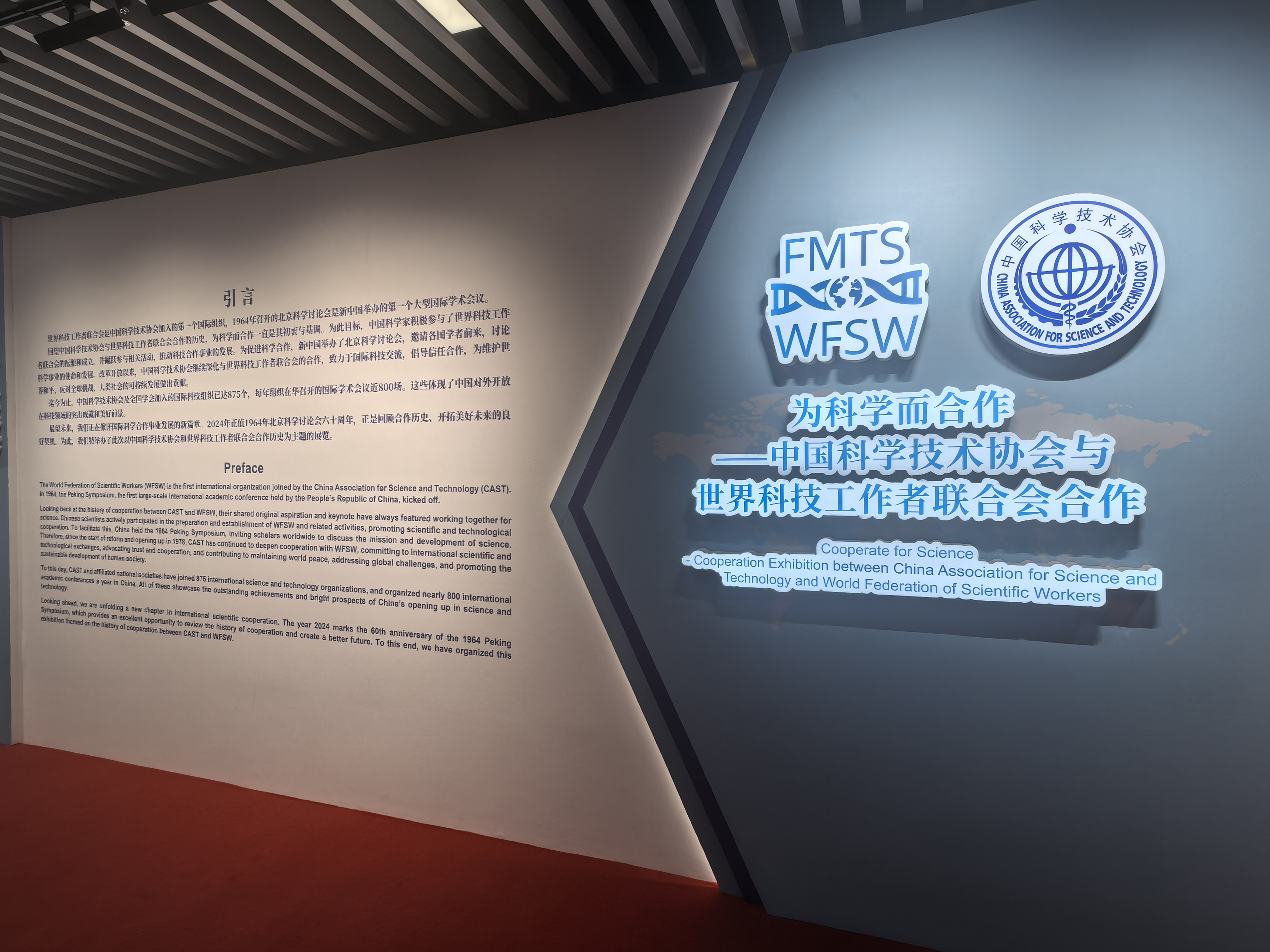World Sci-tech Workers Urge for Collaboration

In the face of severe global challenges, countries should put aside prejudices and cooperate on sci-tech development for the benefit of all. This was the message of a major event held in Beijing recently to promote international sci-tech communication and collaboration.
Hosted by the China Association for Science and Technology (CAST) and the World Federation of Scientific Workers (WFSW), it was attended by experts from Europe, Africa, and the Americas.
Pascal Janots, treasurer of WFSW, pointed out that though China has made remarkable achievements in scientific innovation in recent years, in France, the media hardly covers that. The successful Chang'e-6 mission, which was the first to bring back soil samples from the far side of the moon, got only a single report in the mainstream French media.
Janots called on the European media and public to set aside their prejudices, and treat China's significant contributions to the global sci-tech field equally like Western achievements.
He also emphasized that global issues such as climate change, energy crisis, and resource inequality urgently require closer international cooperation. China's leading position in these fields makes it an important force in global collaboration.
Malik Fall, vice-president of WFSW, also affirmed China's leadership in the sci-tech field, quoting an ancient saying, "Seek knowledge even if you have to go as far as China" to highlight the country's crucial role in global sci-tech cooperation.
He said Africa has great research potential and a strong need for sci-tech cooperation, and China's experience in this field can greatly assist the continent's development. He also said China's strength in the global scientific field makes it a key partner for Africa, while Africa's vast land and rich natural resources offer numerous research opportunities for Chinese scientists. China could focus more on Africa, particularly in joint research publications and practical cooperation projects, which would create a win-win situation.
He suggested enhancing China-Africa scientific cooperation and proposed the establishment of an African scientific research fund, which would open up new channels for China-Africa scientific cooperation, advancing the partnership to a new level.
Pascal agreed, saying the WFSW and CAST should work together, using cooperation with countries in Africa and Latin America as entry points to foster broader international communication and collaboration.
Shi Yigong,vice-president of CAST and an academician of the Chinese Academy of Sciences, said CAST was ready to strengthen global scientific cooperation.
For that he suggested promoting the spirit of science,which is a vital driving force for sci-tech progress. Also, since science knows no borders, it is crucial to maintain a higher level of openness. Third, international scientific cooperation must be built on trust. Trust can deepen cooperation and make research outcomes more fruitful. Finally, Shi called for expanding the scope of cooperation.
"I hope future cooperation will be enhanced and world sci-tech workers can jointly build a community with a shared future," he said.







